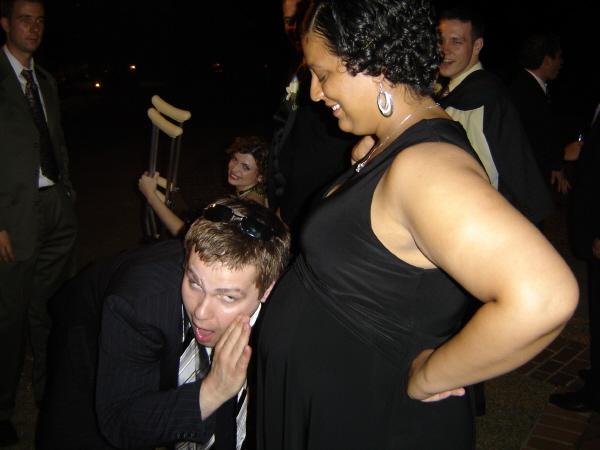Remember when you were a teenager and you got up to do something and you wanted to save your seat? You called 'fives' and no one could take your seat for five minutes. I don't remember doing it much but I was certainly aware of the concept.
Anyway, when my friend Rick got his own place at age 20 or 21 - it instantly become the coolest abode to hang out in as it was not his parents and we could therefore engage in activities not acceptable in our parents houses. His prize possession in the house was this big 'L' shaped couch that was actually very nice. The thing about the 'L' shaped couch was that all seats were good yet slightly unequal (you could get stuck on a corner talking to someone that was boring). Rick was a proponent of the "fives" rule and used it frequently. Of course, because Rick lived there he had the ultimate advantage - he was there first and then could choose the seat of his liking (usually the seat in the middle of the 'L' shaped couch) - and he exercised it often. As an aside, Rick was always a big fan of the "it's my house" defense in our younger years.
I always thought this was a bit much so when Dave and I got our own place in Manhattan I suggested a "No Fives" policy in our living room. Dave was all for it and, thus, by a vote of 2-0 it became the law of the land - or at least our 5'x8' living room. It has been well received by the general body of folk that have come and gone through our living rooms over the last few years and for the most part has been adopted by my group of friends as the accepted way of dealing with the seating arrangement.
It is a better way handling seating in a living room for two reasons: 1. because if you are the last person at a gathering you are not religated to the worst seat in the house, and 2. (which was not really not foreseen) it really mixes up the room socially - put 8 people in a living room in the same seats and you're probably going to talk to the same 2 or 3 all night - but if everyone up-grades a seat it will shuffle who you are sitting next to, thus ensuring that more interactions will ensue.
Rick still contends that, and this is my interpretation of his argument, continuity trumps the right for a better seat. If you're watching a movie or having a conversation you shouldn't have to give that up just because you have to pee or get a beer.
I prefer the market based approach. Let's say you have the dope recliner leather chair but you want another beer. Well, is the opportunity cost too great? Should you get the beer and lose your seat or hang out and gamble on when someone else will get up and be able to get you a beer? The cost of a beer is your seat, do you want to pay?
Rick seems to believe that all seats are created equal, yet all sitters are not.
We at 209 West 108th Street, however, believe firmly that while all seats are not created equal - all sitters are.
Now, I'm not sure I'm prepared to say Rick's way is morally reprehensible but I am prepared to say our way is superior. We also make exceptions for extreme cases such Chaberski-Testa Dining Act of 2005 that declared that while eating you cannot lose your seat as long as your meal lasts for a reasonable amount of time (upheld in a 2-1 split decision with Chaberski and Testa in the majority and Strauss dissenting).
Thoughts, comments, concerns?
Sunday, August 21, 2005
Subscribe to:
Post Comments (Atom)


1 comment:
By all means it is a polite move to let the guy kicking it hold on to his seat. It is also a nice thing to do if you don't take your friend's girlfriend's seat if she gets up.
However, if you'd also like to kick it to that girl and she's fair game (calm down, chick readers), take your buddy's seat.
And if your friend's girlfriend sucks, take her seat.
Point is, there is no established law protecting these seats. Each of these type situations is left to the seat-taker's discretion.
Post a Comment